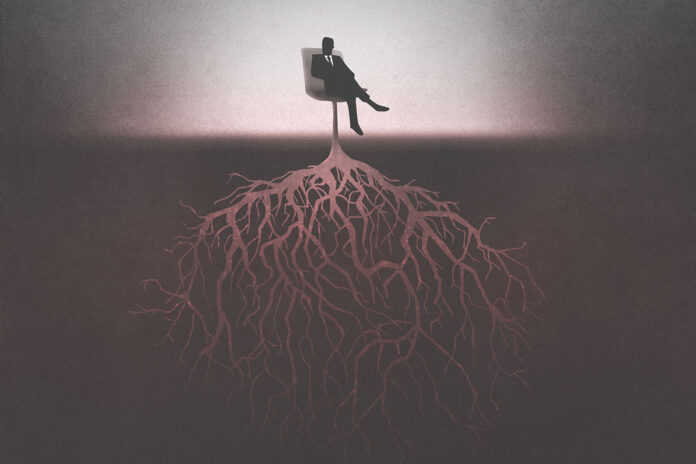While traveling recently I ran into Bud, a cannabis industry veteran, who I had known since I was a teenager. He is a big guy, trim, with impeccable taste. Nearly everyone likes him. He was married to another long-time industry insider. Their daughters, now grown, live scattered throughout the country and also work in the business. They all know everybody who is anybody, including “legacy” growers and sellers.
Naturally, our conversation turned to the state of the compliant industry. Bud was born in California to immigrant parents, but he lived in Colorado in 2012 when it became the first state in the country to legalize adult use. He remembered those heady days when unbridled enthusiasm was everywhere. Legalized weed was going to sweep the nation, and growers, processors, and retailers were “going to do well by doing good.”
“I don’t know,” I said. “Things are looking kind of bad out there in the business. I’m a little depressed and worried.”
“Depends on where you look and when,” he replied. “Different states are in different stages of development. It reminds me of the chickens on the farm I used to live on. We had eggs, chicks, chickens, and sometimes even pot pie. It’s hard to make generalities in a dynamic, moving environment. Like I said, it’s where you look. Cluck, cluck!”
“Look at California, Michigan, and Colorado,” I said. “The price of weed has dropped, there is strong competition from the illicit market, and demand is down. Some industry people we know are really hurting.”
“You’re forgetting some important facts and thoughts,” Bud responded. “First, don’t minimize the effect of three-plus years of COVID. No industry, including cannabis, was unaffected. People were at home avoiding each other to keep from getting sick, Zooming from their bedrooms, binge-watching cable series, putting on ten pounds, and smoking weed. Lots of it. Of course we are having a bummer hangover in the industry.
“And remember,” he continued, “cannabis is a commodity crop. It’s not that hard to grow. Of course, as with most crops, we have grades and derivatives, so there are premium pricing opportunities. Saké is not just rice, after all. And we have brands. And medicines. But fundamentally, a big crop results in lower prices. It’s Mother Nature’s balancing act. But what goes down typically goes up, as well, so you can’t get hung up on any moment in time.
“And California isn’t New York, and New York isn’t Florida, and Florida isn’t Colorado. Thanks to our pals the feds, every state—heck, every city—is like a sovereign nation. There are now more than twenty states with adult use, thirty-eight with medical, and it’s spreading like Humboldt Bubba Kush. You can almost drive coast to coast with cannabis in the glove box and only pass through legalized states. And each state market is different so, before you jump to conclusions, look everywhere.
“New states are joining nearly monthly,” he continued. “The industry has more than $33 billion in sales, and that’s growing fast—nearly 20 percent a year. It is expected to add more than $100 billion to the United States economy in 2023. Nearly 70 percent of Americans favor legalization. Tax revenues are up in many states, with $3 billion collected last year. More than 400,000 people work in the industry. I recognize this industry faces challenges others do not—lack of credit cards, scarcity in banking, insane taxes—but it’s a high-growth industry, nonetheless. Wonderful things will happen amidst the carnage of capitalism and regulation. Opportunities abound. The industry grows like a weed, with a bit of herbicide thrown in here and there to keep things real.
“And who knows? Maybe Uncle Sam and his minions will open their eyes and minds and figure they, too, could get on the tax choo-choo and help close the national debt. Weed is not so bad, really. Better than opiates, better than booze, better than Prozac. And then our businesses can compete dog-eat-dog like all other businesses unless you have a patent and maybe a trademark. I remember not too long ago when my friends were busted, yanked from their communities, and locked up just for pot.
“So, I’m optimistic,” he said. “I’m not burnt out yet. I’m going to take a deep breath, have a snack, and chug a beverage. Then I’m going in hot. There is much more to do. More markets to enter, more products to develop, more people to impact. Remember the potato famine? Well, you’re still snarfing down McDonald’s fries nearly 200 years later, right? So look down the road a bit and recognize it goes on over the horizon, albeit not without potholes and sharp curves.”
I admit Bud lifted my spirits, as he always has done, providing a more positive perspective on the future of the industry. He focused me on the long run, not just the near-term challenges, and reminded me of the enormous strides the compliant industry has accomplished in just a decade. But I am a realist. I realize things in the industry will be hard at times. And arbitrary. And challenging. But things will also bloom, grow, and spread.
As we parted, making promises to meet again soon, Bud turned to me and shouted, “I’m not dead yet—not by a long shot. I’ve still got plenty of potency, growth, places to go, and good vibes. The future is bright!”












